7 IMPORTANT QUESTIONS ON GETTING YOUR BABY TO SLEEP, ANSWERED
Understanding your baby's sleep may be more relevant than you realise
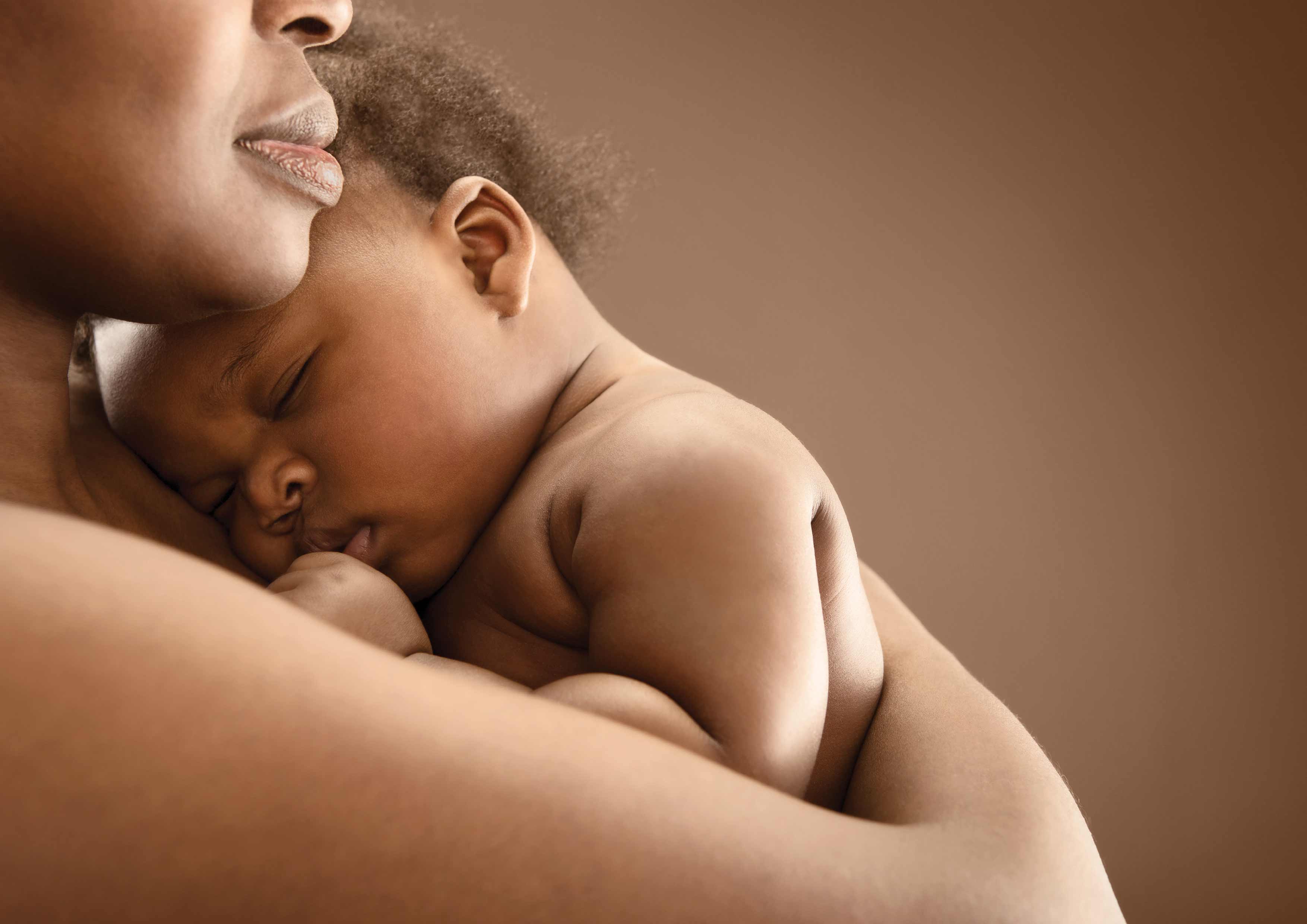
When a baby is born they're still trying to make sense of the world and is unaware of the concept of night and day. New parents and carers might be living in a bit of a bubble and this can take some time for them to adjust. Your baby will gain great comfort from touch and skin-on-skin contact, but what about sleep?
Here are the most common questions and answers about how to get a baby to sleep.
1. WHAT ARE THE BENEFITS OF SLEEP FOR BABY’S HEALTH?
A large literature review in 2017 showed that sleep has an important role in both mental and physical development as a child ages. It’s essential at all ages for laying down new memories, protecting our immune system and restoring the energy we use up in the daytime. Sleep helps your baby to be fully active and make the most of its days, in terms of feeding well, learning at an increased rate and interacting with its wonderful new world and family.
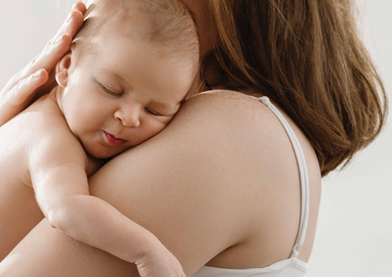
2. HOW SHOULD I PREPARE MY BABY FOR SLEEP?
Always put your baby to sleep on its back and ensure you live in a non-smoking environment to reduce the chance of Sudden Infant Death Syndrome. Make sure the room temperature is cool at around 16 degrees celsius, which is the ideal temperature for sleeping.
You need to help your baby learn the difference between night and day. Give evening feeds in a darkened, quiet environment. A comfortable place for feeding, whether breast or bottle, is essential. You can learn to feed on-the-go later.
3. DOES A BEDTIME ROUTINE MATTER?
A daily bedtime routine could be worth its weight in gold allowing your child to flourish. One large US study suggests the benefits of a consistent routine are that children are found to fall asleep quicker and wake up less often, and maternal mood is improved.
If older children in the household make a regular routine challenging, try involving them in the care of the baby so they feel part of the process. Your baby will grow to love this as they get older and it can be great sibling quality time.
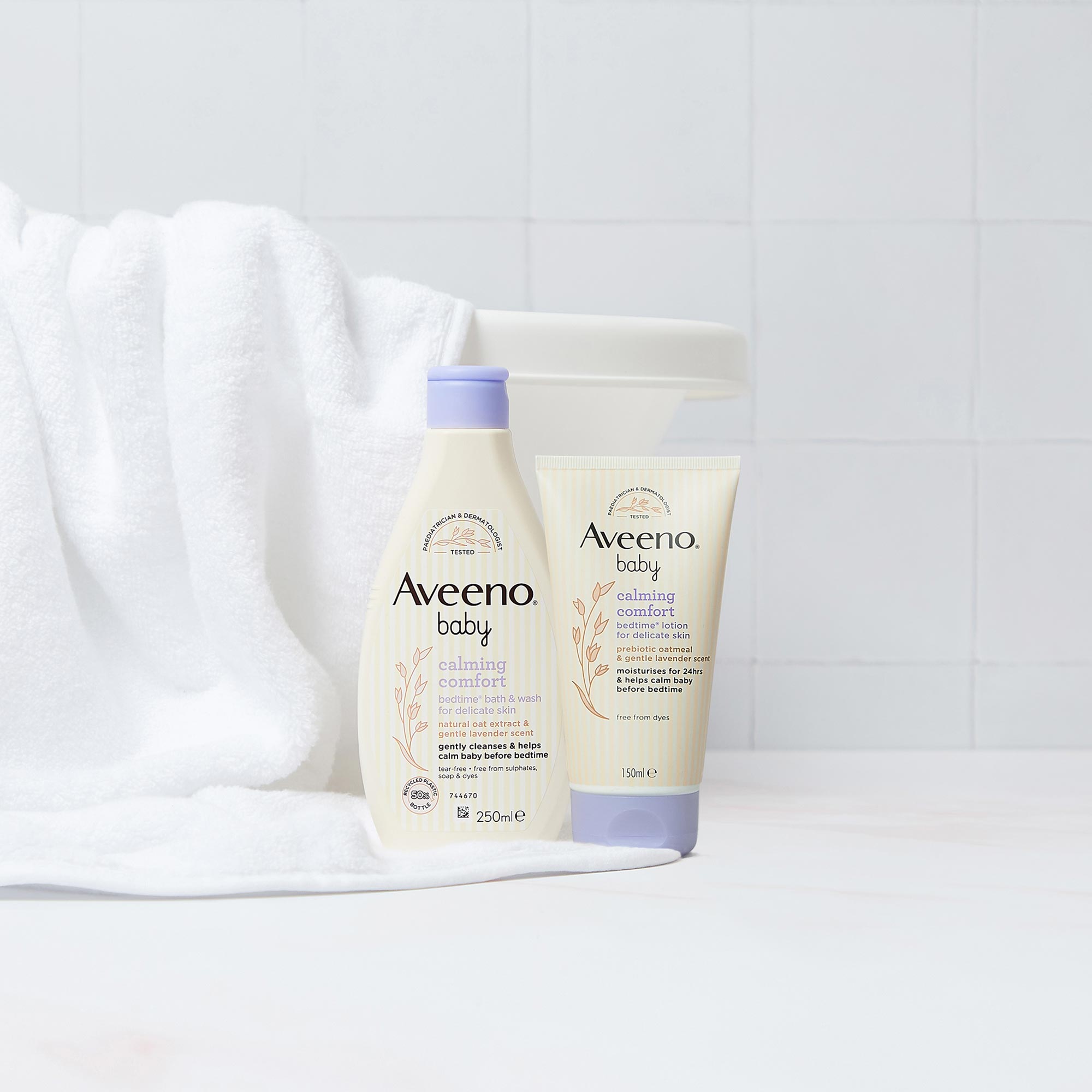
4. HOW OFTEN DO NEWBORN BABIES SLEEP?
Newborns sleep in cycles of 45 minutes – initially deeper, then lighter, which might mean they wake at 20 minutes. As you gain confidence, you may not feel the need to cuddle or feed them at every wake, simply comfort them gently.
How often your baby wakes up to be fed will gradually improve as it grows in weight and manages to sustain itself between feeds. Some studies have shown that leaving a baby to cry encourages self-soothing, but as with all parenting, it’s a personal decision.
Rest while your baby naps, and stay well-nourished and hydrated. Changing hormones and tiredness can lead to a roller coaster of emotions for a mother. If you don’t feel right, please speak to your doctor. You won’t be the first parent to ask for help.
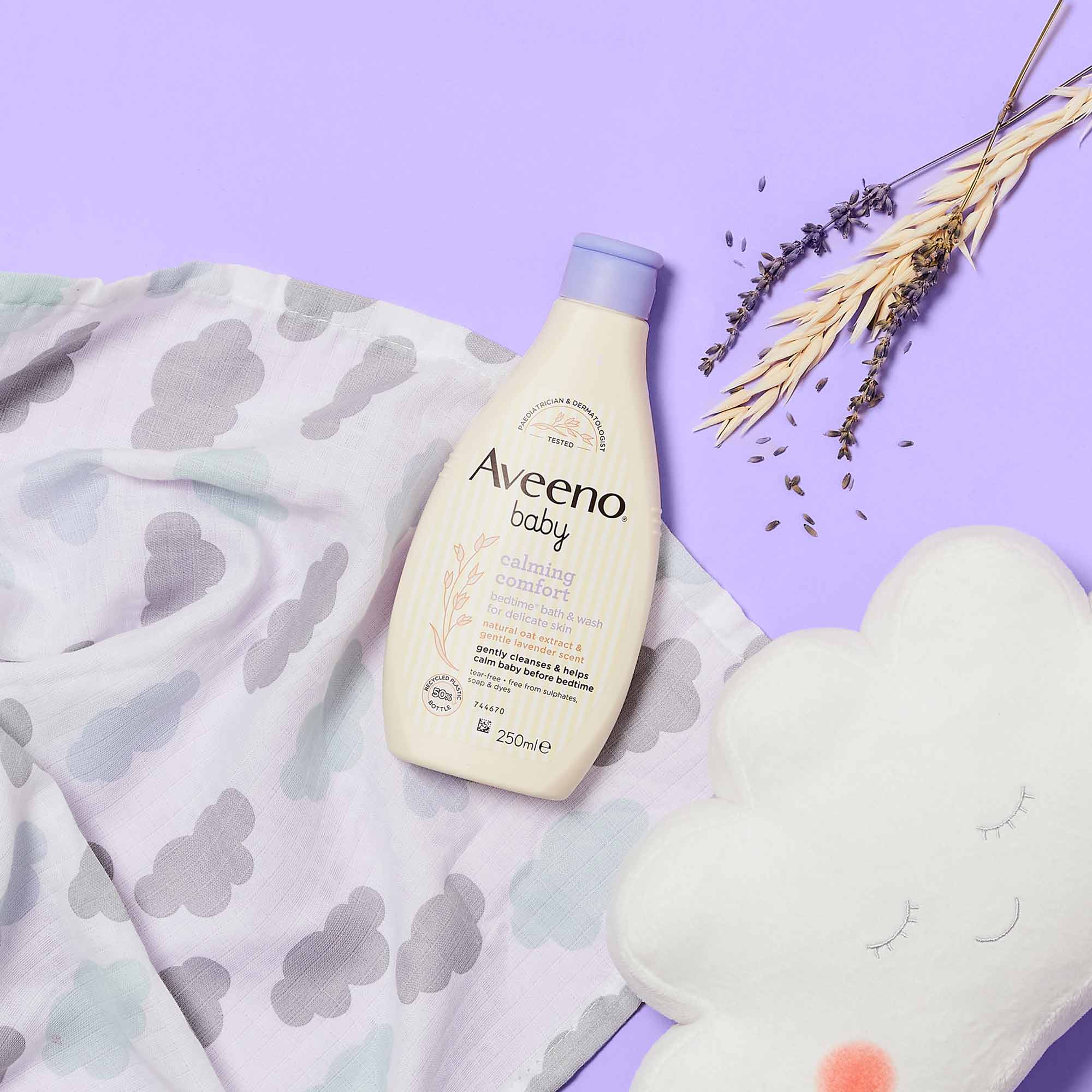
5. HOW DO I GET A NEWBORN BABY (0-3 MONTHS) TO SLEEP?
A newborn comes with its own timetable, sleeping up to 18 hours a day. Don’t put pressure on yourself to immediately gain control. Going with the flow is key, with good support, so learn to accept help.
Begin the evening wind-down with a gentle bath using AVEENO Baby Calming Comfort™ Bedtime® Bath & Wash for instance, and a quiet feed. Your baby may show signs of tiredness, such as rubbing its eyes, fussing or crying. If you put it to bed when sleepy, rather than asleep, it’s more likely to learn to settle naturally.
6. HOW DO I MAKE BEDTIME SPECIAL?
Oat-based moisturisers are very effective at soothing and moisturising skin after a bath. Essential oils may not be safe for a baby’s delicate skin, so massaging in a lavender-scented moisturiser is a good way to enjoy the relaxing fragrance. The bedtime routine helps create a sleep-friendly atmosphere.
AVEENO Baby Calming Comfort™ Bedtime® Lotion is a non-greasy moisturiser formulated with prebiotic colloidal oatmeal and calming lavender scent. When combined with a warm bath, it can help to calm and comfort your baby before bedtime. You can use this alongside AVEENO® Baby bath products.
If your baby has drier patches of skin, AVEENO® Baby Dermexa Good Night Emollient Balm intensely moisturises and immediately soothes those areas that need a little extra care.
Finish your baby's bedtime routine* with some quiet time together. Help your baby drift off by reading a bedtime story, softly singing a lullaby or feeding them.
*routine consists of bath, massage and quiet time. Tested on babies 7 months+, 1 week+ use
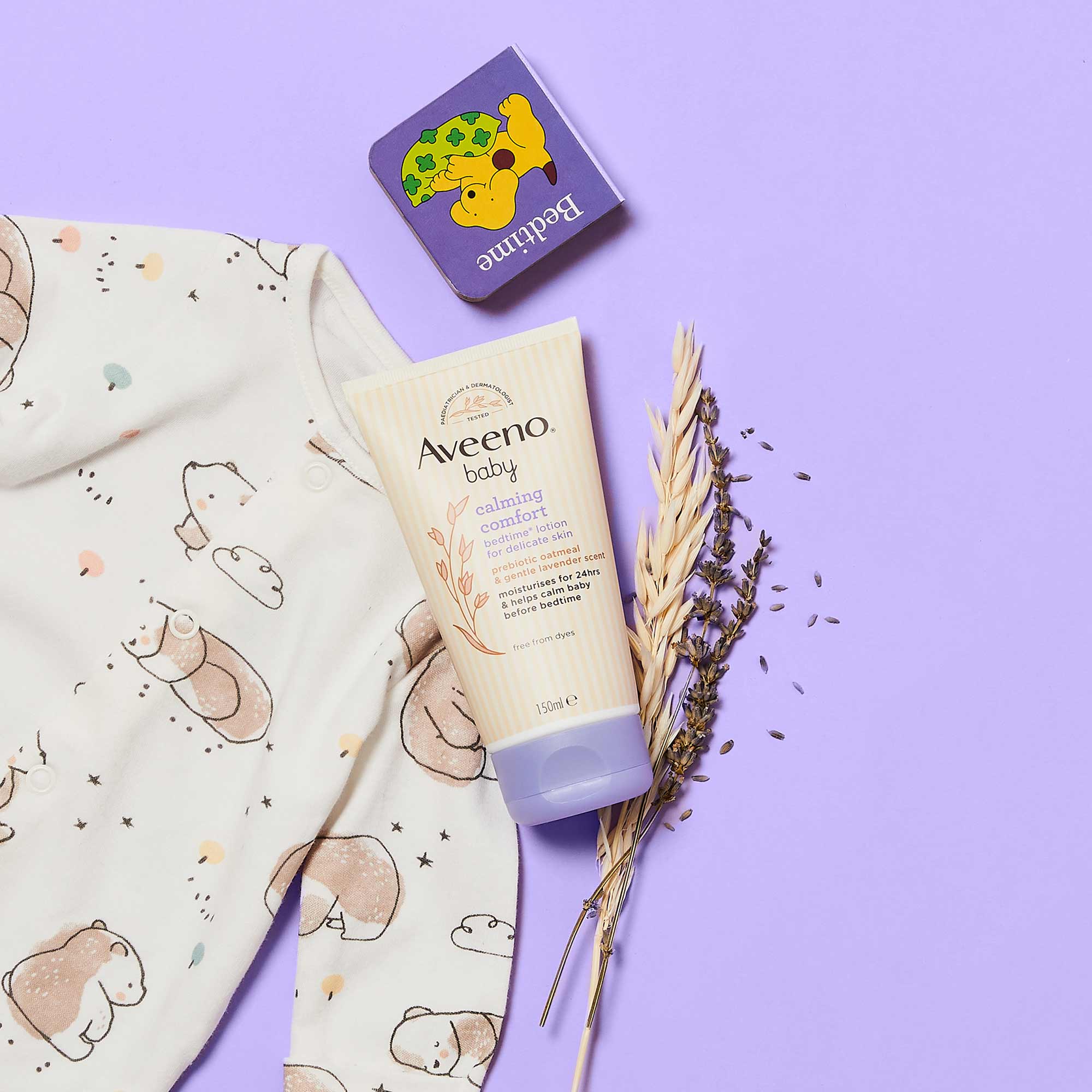
7. HOW LONG SHOULD AN OLDER BABY SLEEP?
By 12 weeks, up to three quarters of babies will sleep through the night. Infants sleep nine to 12 hours a night, with up to four naps a day.
After six months, separation anxiety may occur, or the child may wake more often if they’re unwell or moving in the night. Always seek medical advice if you think they’re ill and are worried.
This article was originally published on NetDoctor on 9 September 2020.